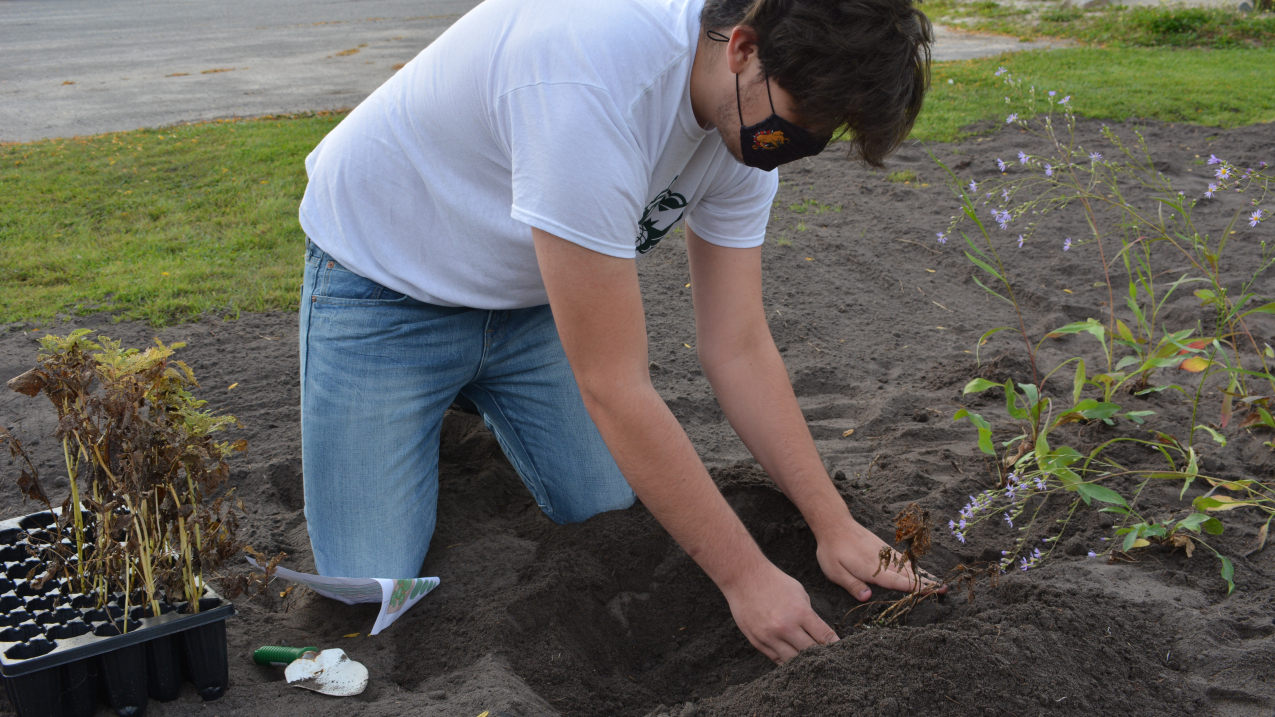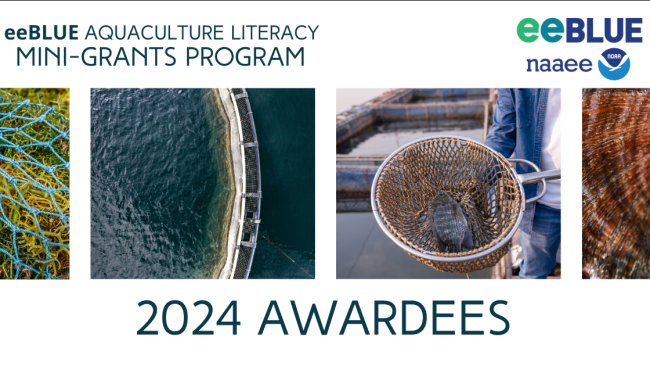Areas of the city of Au Gres, Michigan, which sits along the Au Gres River, are prone to flooding during major rainstorms. The city’s Riverside Park was particularly problematic. Standing stormwater resulted in safety and accessibility concerns, while improper drainage allowed contaminants to directly run into the river system. When it came to doing something about this problem, it was Au Gres-Sims High School students who decided to take action.

A volunteer helps to maintain native plants in a bioswale in Au Gres, Michigan. (Image credit: Au Gres-Sims School District)




